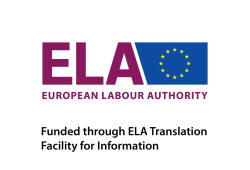Recovery and Resilience Facility project “Improving skills for adults” No. 3.1.2.5.i.0/1/23/I/CFLA/001
Published: 06.12.2022.
Updated: 30.07.2025.
Updated: 30.07.2025.
Lifelong learning programmes aim to promote continuous development of knowledge and skills of employed persons by increasing their competitiveness on the labour market.
Boost your value on the labour market by learning skills that are in demand!
Target groups of the event:
- employed or self-employed persons aged 50 and over
- employed or self-employed persons with insufficient education or skills to meet labour market requirements
- employed or self-employed persons with a disability or foreseeable disability
IMPORTANT
A person may register no more than one current application for an educational programme in a lifelong learning programme.
Persons with hearing and speech impairment have access to a sign language service.
- Training is provided in the national language for at least 6 academic hours per week (not exceeding 8 academic hours per day) between 07:00 and 22:00, including holidays. Training may be carried out in person or online.
- If a person stops attendance without justified reasons or fails to take a test or final examination without justified reasons within 90 days of completing the training, the SEA shall exclude this person from other training courses for persons at risk of unemployment for 24 months or until this person passes the test or final examination.
- A person undergoing training may participate in non-formal education for a maximum of six times over a period of two years.
- A person may not repeatedly participate in the same training programme, unless the earlier training programme was discontinued.
- Persons who have obtained appropriate basic, secondary or higher education in Latvian language within the framework of their formal education as evidenced by a relevant document (e.g. diploma, certificate, attestation, certificate from the relevant educational establishment) may not be involved in the learning of the national language unless the State Language Centre has established that the knowledge of the official language of the head of the educational establishment or the teacher does not conform to the level of proficiency in the official language and to the degree required for the performance of their professional duties.




